Top Trending Government News News & Highlights
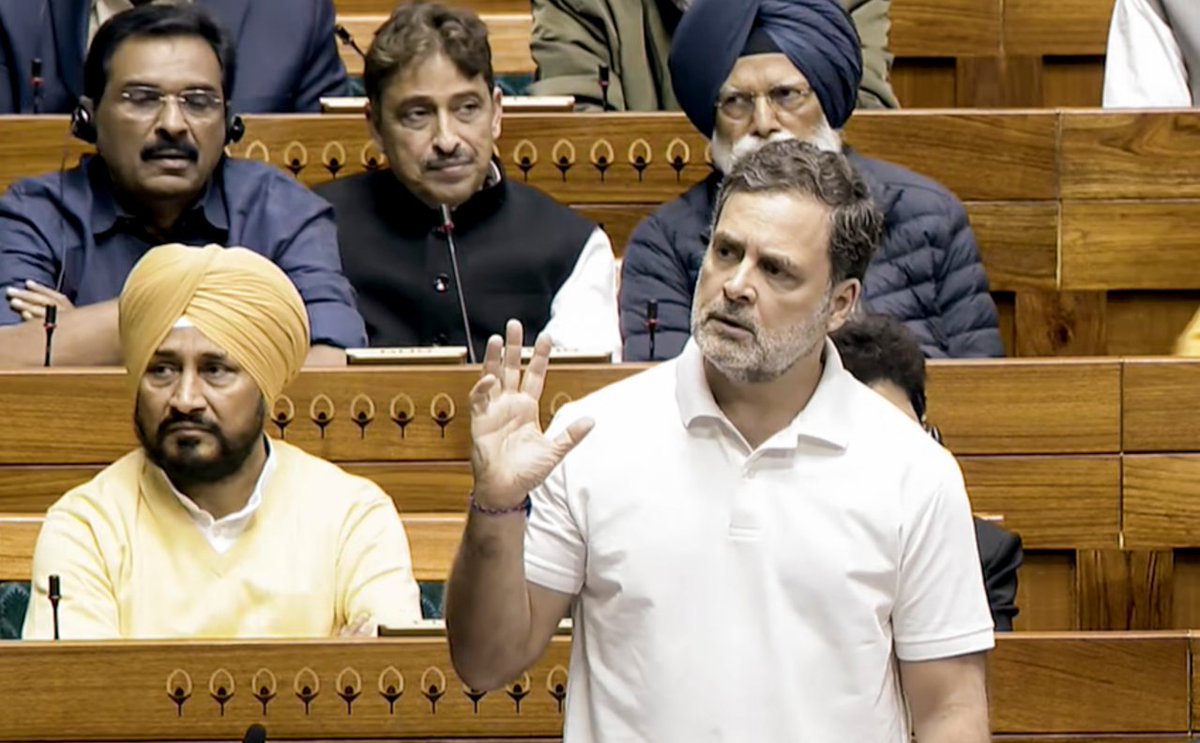

Don't you feel guilty about selling Bharat Mata Rahul Gandhi criticizes the US accord and the Center
Speaking in the Lok Sabha following days of deadlock, Rahul Gandhi criticized the Central government, led by Prime Minister Narendra Modi, for the recently concluded trade agreement with the United States, saying the administration should be embarrassed of it. In a vicious attack, Gandhi said that the Center "sold India" and that the government was endangering farmers' livelihoods by permitting US goods to enter."India is no longer yours. Do you not feel guilty for selling India? In reference to the trade deal, he declared, "You have sold our mother, Bharat Mata." He added that it was a "wholesale surrender" in which the interests of farmers were jeopardized and India's energy security was given to America. Gandhi went on to say that Donald Trump would have been advised to treat India equally if an INDIA Bloc administration had negotiated the trade deal with the US."This is total capitulation. The fact that it is a capitulation by more than simply the prime minister makes it tragic. He has given up the 1.5 billion Indians' future. Gandhi claimed that he had given up the future in order to save the BJP's financial structure, which is the subject of a case in the US.Gandhi claimed that the farmers' interests had been compromised and that they were facing a "storm" as American agricultural products flooded Indian markets. Additionally, he claimed that the Indian textile sector is "finished."We are about to enter a period of unrest, and the country has been sold. The country is sold out. "Its farmers and data have been sold," Gandhi reaffirmed as he wrapped up his remarks.Following Rahul Gandhi's address, Union Parliamentary Affairs Minister Kiren Rijiju declared that no one could sell India and charged that the Congress party was undermining the nation. "Congress is sad because India is progressing," he stated, asserting that Prime Minister Narendra Modi is India's strongest PM. He claimed that before leaving Parliament, the Congress MP gave speeches full of falsehoods and unfounded accusations. Rijiju remarked, "He never stays back to hear the minister's response."It is regrettable that we lack a serious personality or a person with a serious character that would be appropriate for the role of opposition leader. Rahul Gandhi's lies will be refuted by our party both within and outside the House.
Published 11 Feb 2026 11:10 PM
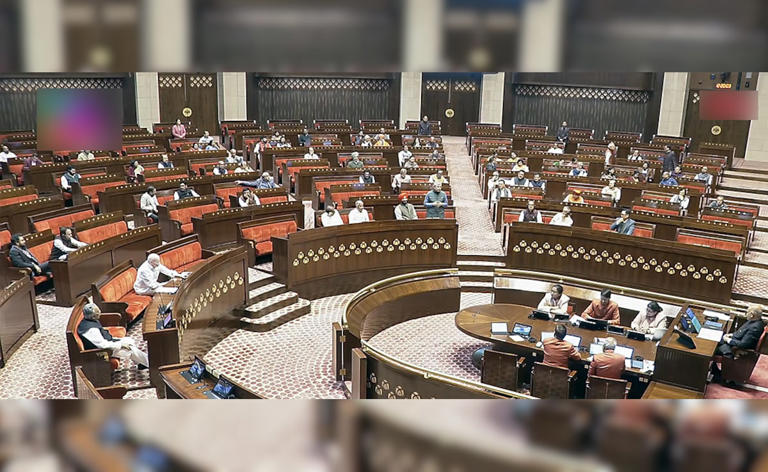

Updates for the 10th day of the Parliament Budget Session The Government-Opposition deadlock ends, and both Houses begin discussing the budget
The Lok Sabha began discussing the Union Budget on Tuesday, February 10, 2025, in the afternoon, signaling the end of the impasse between the opposition and treasury benches. The discussion had been delayed for days due to the opposition's insistence that LoP Rahul Gandhi be given the opportunity to speak on a number of topics. Following two adjournments, the House reconvened at 2 p.m., and the Speaker, Krishna Prasad Tenneti, invited Congressman Shashi Tharoor to commence the debate. The Thiruvananthapuram MP then began discussing the matter. Soon after opposition parties filed a notice to introduce a motion to oust Om Birla as Speaker of the Lok Sabha, the thaw occurred. Sukhendu Sekhar Roy of the Trinamool Congress emphasized that rising inequality could cause a "social upheaval," akin to what was seen in neighboring countries, as opposition parties criticized the government for failing to address issues like unemployment and inflation in the Union Budget during the budget discussion."If the situation is not brought under control, I fear that the country will soon experience social unrest similar to what has recently occurred in some of our neighboring countries. We have never witnessed such skyrocketing inequality between the rich, super rich, upper middle class, middle class, and the poor," Mr. Roy stated.
Published 11 Feb 2026 11:06 PM

India displays its entire armed might on the 77th Republic Day, with Operation Sindoor taking front stage on the Kartavya Path.
Top national leaders and prominent foreign visitors joined the festivities, which had as their subject 150 years of "Vande Mataram." About 10,000 distinguished guests saw the parade, which combined military might with cultural cohesion.At its 77th Republic Day parade on Monday, January 26, 2026, India put military might front and centre. Kartavya Path was transformed into a sweeping display of missiles, armour, mechanised columns, and combat aircraft, with a keen focus on weapon systems related to Operation Sindoor, the high-intensity military operation carried out in May of last year.The BrahMos supersonic cruise missile, Akash air defence system, Suryastra rocket launcher, and Arjun Main Battle Tank were among the major armament systems on exhibit at the start of the military demonstration, which emphasised India's focus on battlefield readiness and domestic defence manufacturing. A large portion of the equipment on exhibit was either used in Operation Sindoor, the confrontation with Pakistan that took place from May 7–10, or it was directly inspired by lessons learnt.A tri-services tableau featuring replicas of key weapon systems used during the operation was a big draw. A glass-cased integrated operational command centre served as its focal point, providing a visual representation of Operation Sindoor's execution through the coordinated use of systems including the S-400 air defence system and BrahMos. Akash and S-400 systems were depicted as offering a protective air-defense shield during the fight, while BrahMos missiles were predicted to perform decisive offensive attacks.Lt. General Bhavnish Kumar, a second-generation officer and General Officer Commanding, Delhi Area, led the procession. The Indian Army demonstrated a phased "Battle Array Format," including its airborne component, for the first time. The reconnaissance element included high-mobility reconnaissance vehicles after the historic 61 Cavalry in active battle uniform. Flying in Prahar formation, the domestic Dhruv Advanced Light Helicopter and its armed counterpart Rudra displayed aerial battlefield shaping.
Published 27 Jan 2026 09:07 PM
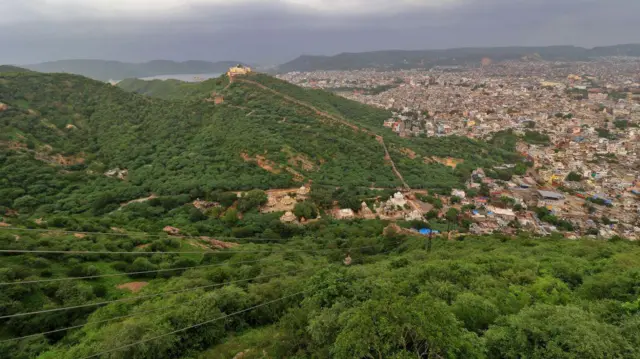

Why rising demonstrations are centered around India's Aravalli hills
The Supreme Court's redefinition of the Aravalli hills, one of the oldest geological formations in the world, which encompass the states of Rajasthan, Haryana, Gujarat, and Delhi, has sparked protests throughout northern India. Any landform rising at least 100 meters (328 feet) above the surrounding terrain is considered an Aravalli hill under the revised definition, which the court adopted in response to proposals from the federal government. An Aravalli range consists of two or more of these hills within 500 meters of one another, as well as the terrain in between. Environmentalists contend that classifying Aravalli hills according to height runs the risk of leaving many lower, scrub-covered but ecologically significant slopes vulnerable to mining and development. However, according to the federal government, the new definition is intended to increase uniformity and reinforce regulations rather than weaken rights.Protests have erupted across northern India after the Supreme Court redefined the Aravalli hills - one of the world's oldest geological formations spanning the states of Rajasthan, Haryana, Gujarat, and the capital, Delhi.
Published 22 Dec 2025 10:25 PM


Government News
Government News & Trends where we share you the latest updates under the government authorities globally starting from India to USA, China, Russia, Pakistan, UK and many more nations.


Indias election of 2024 opponents and Modi battle in the fourth phase of the Lok Sabha voting
Live updates for Phase 4 of the Lok Sabha Election 2024: All 17 of Telangana's LS seats, all 25 of Andhra Pradesh's, 13 of Uttar Pradesh's, five of Bihar's, four of Jharkhand's, eight of Madhya Pradesh's, eleven of Maharashtra's, four of Odisha, eight of West Bengal, and one of J-K are having polls.Live updates on the Lok Sabha Polls 2024 Phase 4: The fourth phase of the Lok Sabha election is currently taking place in 96 constituencies spread over nine states and one Union Territory, Jammu and Kashmir. As of 1 pm, the approximate voter turnout was registered at 40.32 percent. Out of all the states that held polls, West Bengal recorded the highest turnout of 51.87 percent, while Jammu & Kashmir recorded the lowest turnout of 23.57 percent. This number remains greater than the turnout in Srinagar in 2019. Simultaneous state assembly elections are being held in Andhra Pradesh and Odisha.


Results of the CBSE 2024: Class 10 announced. Where to look, vanishing patterns, & additional
On May 13, the Central Board of Secondary Education announced the results for Class 10. The board had previously declared the 2024 Class 12 Results. The Class 10 board exam was administered by CBSE this year from February 15 to March 13.On May 13, the Central Board of Secondary Education (CBSE) declared the Class 10 results. This year, 93.60 percent of candidates passed. Twenty-95,467 out of the 22,38,827 candidates that took the exam this year succeeded. There has been a 0.48 percent increase in the pass percentage this year. The Class 10 pass percentage in 2023 was 92.12%.According to officials, more than 47,000 pupils received grades above 95%, and more than 2.12 lakh received grades above 90%.With a 99.75% pass rate, Trivandrum topped the list among the regions, closely followed by Vijaywada with 99.60%. Ajmer, Bengaluru, and Chennai received scores of 97.10%, 99.26%, and 99.30%, respectively.Girls have outperformed boys so far this year. This year, girls have a 2.04% higher pass rate than boys. Girls pass with an overall percentage of 94.75 percent, while boys pass with a proportion of 92.71 percent. The Class 10 board exam was held this year by CBSE from February 15 to March 13. Students can verify and download their results by visiting the official website, cbse.nic.in, whenever the board declares the Class 10 result for 2024.Today, the board declared the Class 12 Result for 2024, revealing an 87.98 percent pass rate. According to officials, 91.52 percent of girls passed the exam, which is 6.40 percentage points more than the success rate for boys.


Indias opposition is ecstatic that Kejriwal, a critic of Modi, has been granted bail to run for office.
May 10, 2018 (Reuters) - Arvind Kejriwal, the chief minister of Delhi, was granted temporary bail by India's highest court on Friday in connection with a graft case. This allowed him to campaign in the ongoing general elections and strengthened the opposition alliance, of which he is a well-known member.Kejriwal, a vocal opponent of Prime Minister Narendra Modi, will be released on bail until June 1, the final day of the seven-phase national election, according to the Supreme Court, and must go back to pre-trial custody on June 2.After the vote's third phase on May 7, which saw the completion of polls for more than half of India's 543 parliamentary seats, the country started holding elections on April 19.Elections are scheduled for May 25 and June 1, respectively, in the two regions controlled by Aam Aadmi Party (AAP) leader Arvind Kejriwal: the northern state of Punjab and the National Capital Territory, which comprises New Delhi.On June 4, the votes will be tallied, and the results should be made public that same day.Soon after being released from Tihar jail in Delhi, Kejriwal told supporters through the sunroof of a car, "It feels good to be back among you," while sporting a dark collarless T-shirt. Thousands of AAP supporters had arrived, chanting slogans, passing out candy, and flying the party's yellow and blue flags. "I have only one request for you, we have to come together to save the country from dictatorship," Kejriwal stated. "I'm doing everything in my power to oppose this regime. However, 1.4 billion people—that is, the entire population of India—will have to struggle against dictatorship," he remarked.The court had stated last week that, given the length of the appeal against Kejriwal's arrest, it might think about granting him temporary bail "because of the elections" until the case was being considered. The administration of Prime Minister Narendra Modi has been accused by opposition parties of employing investigative agencies to harm its competitors; the government disputes these claims. Over the years, Kejriwal has accused Modi and his Bharatiya Janata Party (BJP) of a number of offenses, including undermining the federal framework of the constitution, fostering corruption, undermining Delhi's ability to govern, and harming democracy.


Indias highest court releases opposition leader Arvind Kejriwal on bail.
The Supreme Court grants the chief minister of Delhi permission to leave detention till June 1 in order to conduct an election campaign.Important opposition figure Arvind Kejriwal, the Chief Minister of Delhi, was imprisoned. The Supreme Court of India has allowed his temporary release on bail so he can run for office in the current general elections.Justices Sanjiv Khanna and Dipankar Datta of the Supreme Court ruled on Friday that Kejriwal might remain in detention until June 1, which is the final day of voting in the seven-phase election that began on April 19.Kejriwal was detained in March for allegations of corruption, and the court ordered him to turn himself in on June 2.According to their decision, "He has not been found guilty, despite the fact that serious accusations have been made." "He has never been involved in any criminal activity. He poses no threat to the community.The results of the biggest election in history will be declared on June 4. Prime Minister Narendra Modi, who is running for a third term in a row, ran a contentious campaign against a coalition of 26 opposition parties led by the Indian National Congress, and his Hindu nationalist Bharatiya Janata Party (BJP).The Indian National Developmental Inclusive Alliance (INDIA), of which Kejriwal's Aam Aadmi Party (AAP) is a member, has referred to the lawsuit against him as politically driven and contrived.The BJP-led National Democratic Alliance (NDA) faces competition from the AAP in Delhi and Punjab, where elections are scheduled for May 25 and June 1, respectively. The accusations directed on Kejriwal are a result of his government's choice to forgo a large government investment in the liquor industry and enact a program that would have liberalized the sale of alcohol in 2021.The following year, the policy was reversed, but not before his associates were imprisoned as part of the probe into the purportedly dishonest licensing process.Kejriwal's party and ministers are accused by the federal financial crimes investigation agency, the Directorate of Enforcement, of taking bribes from liquor contractors totaling one billion rupees ($12 million).Following his detention, pro-Kejriwal rallies were staged in many places throughout the nation.Since taking office about ten years ago, Kejriwal has served as chief minister. Prior to that, he was an outspoken opponent of corruption. He has refuted the allegations and is still Delhi's most senior elected official.The directorate opposed Kejriwal's release on Friday, arguing that allowing him to run for office would show that the legal system treated civilians and politicians differently.It stated that Kejriwal is not a candidate in these elections and that "the right to campaign for an election is neither a fundamental right nor a constitutional right and not even a legal right." Opponents of the government have charged Modi of using the nation's investigative agencies as a weapon to intimidate his political enemies. According to Modi, the agencies are operating independently of the government and carrying out their mandate.
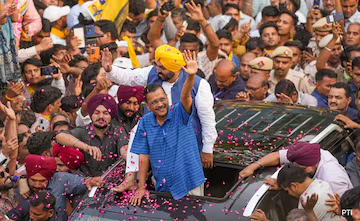

Arvind Kejriwals first roadshow following his release on bail will be held by PM Modi in Bengaluru.
A number of political and athletic events are scheduled to take place in India, including PM Modi, Priyanka Gandhi, and other leaders' nationwide campaigns for the Lok Sabha. In addition, today at the Bharat Mandapam, the Arbitration Bar of India will be established, with Union Ministers S. Jaishankar and Ashwini Vaishnaw attending as Chief Guests. View the main May 11 events listed below.Today, PM Modi is scheduled to campaign in Odisha and Bengal. He is also scheduled to attend a public meeting in Balangir. He will then travel to West Bengal, where he would spend the next two days campaigning for the Lok Sabha elections.The prime minister will be in the Howrah district on May 11 to support the twin party candidates from the district, Arun Uday Pal Chaudhury from Uluberia and Rathin Chakraborty from Howrah, according to sources close to the BJP.Along with Punjab Chief Minister Bhagwant Mann, Delhi Chief Minister Arvind Kejriwal will embark on his maiden roadshow today in South Delhi following the granting of temporary bail in the Delhi Excise Policy case. Priyanka Gandhi, general secretary of the AICC, is scheduled to campaign in Telangana today for the Lok Sabha elections of 2024. She is scheduled to speak at public gatherings in Tandoor (in Chevella) and Kamareddy (in Zaheerabad).Arbitration Bar of India inaugaration.


BJP MP Dilip Ghosh courts controversy with identify her own father jibe against Mamata Banerjee, TMC fumes
BJP MP Dilip Ghosh has courted controversy with his offensive remarks against West Bengal Chief Minister and Trinamool Congress supremo Mamata Banerjee. Ghosh, in a personal attack, asked Banerjee to ‘identify her own father’.In a video that went viral, Ghosh is seen saying that ‘didi’ calls herself the daughter of whichever state she visits. When Didi (CM Mamata Banerjee) goes to Goa, she calls herself daughter of Goa. When she goes to Tripura, she says that she is the daughter of Tripura. She should first identify her own father," he said. TMC has filed a complaint with the West Bengal Chief Electoral Officer against Ghosh for "passing derogatory and offensive comment personally attacking Mamata Banerjee, thereby violating Model Code of Conduct (MCC)" To this, the TMC said that Ghosh has ‘zero respect for women of Bengal’ and called him a disgrace ‘in the name of political leadership’. In a post on X (formerly Twitter), the office handle of Trinamool Congress posted the video of Ghosh and wrote: “Dilip Ghosh is a disgrace in the name of political leadership! From challenging the lineage of Maa Durga to now questioning the ancestry of Smt. Mamata Banerjee, he has wallowed in the filthiest depths of moral bankruptcy." “One thing is crystal clear: Ghosh has ZERO RESPECT for the women of Bengal, whether it be the revered goddess of Hinduism or the only woman Chief Minister of India," the post added.Dilip Ghosh is frustrated. The kind of statements that he has made against Mamata Banerjee - that she should first give an identity of her father - has never before been heard against a woman in this country," she said. Dev also contested that the ‘kind of statements’ that the BJP is making against the West Bengal CM, is against the politics and traditions of India. “For the past two days, the leaders of BJP have been giving long speeches against the insult of one of their women candidates. But the kind of statements BJP is issuing against the only woman CM of this country is against the politics and traditions of this country. BJP is frustrated in Bengal. It is losing. The more the BJP insults Mamata Banerjee, the more people will be with her." Slamming Ghosh for his remarks against Banerjee, the TMC leader claimed that his ‘filthy thinking’ is that of the Rashtriya Swayamsevak Sangh (RSS). “I would like to tell Dilip Ghosh that we know where this filthy thinking of yours against women comes from. This is RSS' thinking - that which is against women..." She also called the National Commission for Women (NCW) ‘hypocrite’ for being silent when the BJP insults Mamata Banerjee. "The respect that the people of Bengal give Mamata Didi, she is considered the daughter of the country. You are insulting her again and again, and you get a befitting reply of this in 2024. I would like to tell the BJP leaders and NCW chief - you are so concerned about the woman candidate of BJP but people like you should be ashamed that whenever Mamata Didi is insulted by the BJP, you stay silent. This is your hypocrisy. Country would give you a reply for the same."


48% of “entitled” MPLAD funds in Gujarat remained unutilised between 2019-24, says ADR
About 48 per cent of the total ₹442 crore that were to be spent as MPLAD funds in Gujarat between 2019 and 2024, remained “unutilised”, stated Association for Democratic Reforms (ADR). “The Member of Parliament Local Area Development (MPLAD) Scheme was started in December 1993. Between 2019 and 2024, the Covid pandemic had caused the scheme to be frozen for 1.5 years. Each MP was entitled to spend ₹17 crore instead of ₹25 crore in their respective constituencies. Thus the total entitled amount was ₹442 crore for the 26 MPs in Gujarat,” Pankti Jog, the state coordinator for Gujarat told businessline. All the 26 seats in the State belong to the BJP. “However, the 26 MPs together recommended works worth ₹354 crore, of which ₹269 crore worth of works were sanctioned and ₹220 crore funds were released by the Government of India. This allocated amount of ₹220 crore is just 49.77 per cent of the total entitled amount of the MPs. If MPs do not recommend work, then the government will not allocate more funds. The onus of recommending works within their constituency lies with the MP,” she said. The 26 BJP MPs incurred an expenditure of ₹230 crore (including interest) which is about 52 per cent of the entitled amount of ₹442 crore. Despite just ₹220 crore being released, the MPs failed to spend ₹31 crore which is about 13.5 per cent of the funds released by the government. According to the data shared by ADR, Union home minister Amit Shah’s constituency of Gandhinagar had the highest unspent balance of ₹3.54 crore, followed by Vinod Chavda of Kutch ( ₹2.35 crore of unspent balance), Devusinh Chauhan of Kheda ( ₹2.35 crore) Poonamben Madam of Jamnagar ( ₹2.19 crore) and Bharattsinji Dabhi of Patan ( ₹2.01 crore). “Each MP could have easily used ₹17 crore during these five years. However, they have spent less than this amount,” Jog said. Of the total sanctioned works in Gujarat, the highest –₹114.81 crore – has been spent on railways, roads, pathways and bridges. And ₹71.32 crore on “other public facilities.”


PM Modi inaugurates modern hospital built with Indian assistance in Bhutan
Prime Minister Narendra Modi and his Bhutanese counterpart Tshering Tobgay on Saturday inaugurated a modern hospital built with Indian assistance here which will be a shining example of India-Bhutan development cooperation.The Gyaltsuen Jetsun Pema Wangchuk Mother and Child Hospital is a state-of-the-art 150-bedded facility that has been built with the assistance of the Government of India in Thimphu. "A boost to partnership in healthcare. PM @narendramodi together with PM @tsheringtobgay of Bhutan inaugurated the Gyaltsuen Jetsun Pema Mother and Child Hospital in Thimphu. The state-of-the-art hospital is a shining example of India-Bhutan development cooperation,” External Affairs Ministry Spokesperson Randhir Jaiswal said in a post on X. India has supported the development of the hospital in two phases. The first phase was constructed at a cost of ₹22 crore and has been operational since 2019. The construction of the second phase was taken up in 2019, as part of the 12th Five Year Plan at a cost of ₹119 crore, and was completed recently, the Ministry of External Affairs said in a press release. It said that the newly constructed hospital would add value to the quality of mother and child health services in Bhutan. The new facility will house state-of-the-art facilities for Pediatrics, Gynecology and Obstetrics, Anesthesiology, Operation Theatre, Neonatal Intensive Care and Pediatric Intensive Care. “The Gyaltsuen Jetsun Pema Wangchuk Mother and Child Hospital stands as a shining example of India-Bhutan partnership in health care,” it added."Bhutan has been receiving a lot of support from India, especially in the health sector, starting from the three referral hospitals and also other health facilities,” Bhutan Health Minister Tandin Wangchuk told PTI Videos. “It is an honour for us to have Shri Narendra Modi here, inaugurating the Gyaltsuen Jetsun Pema Mother and Child Hospital," he said, adding that this hospital is purely dedicated to the mothers and the children of Bhutan. He added that there is a proposal for a cancer hospital which will come up on this campus only. “We are referring all the cancer patients to India. So after the completion of the cancer hospital, I think this will also enhance the tertiary care of health services in Bhutan,” he added. Modi, who arrived in Bhutan on Friday for a two-day State visit to further cement India's unique relations with the Himalayan nation, called on the King of Bhutan, Jigme Khesar Namgyel Wangchuck and held talks with Prime Minister Tobgay on Friday.He also announced that India will provide support of ₹10,000 crore to Bhutan over the next five years. Bhutan's King Wangchuck conferred the ‘Order of the Druk Glyalpo’ to Prime Minister Modi at a public ceremony here on Friday, making him the first foreign Head of the Government to receive the honour.The award recognises Prime Minister Modi’s contribution to strengthening the India-Bhutan friendship and his people-centric leadership. "It is with great humility that I accept the Order of the Druk Gyalpo. I am grateful to HM the King of Bhutan for presenting the Award. I dedicate it to the 140 crore people of India. I am also confident that India-Bhutan relations will keep growing and benefit our citizens," Modi wrote in a post on X on Friday night. India and Bhutan established diplomatic relations in 1968.The basic framework of India- Bhutan relations has been the Treaty of Friendship and Cooperation signed in 1949 between the two countries, which was revised in February 2007.
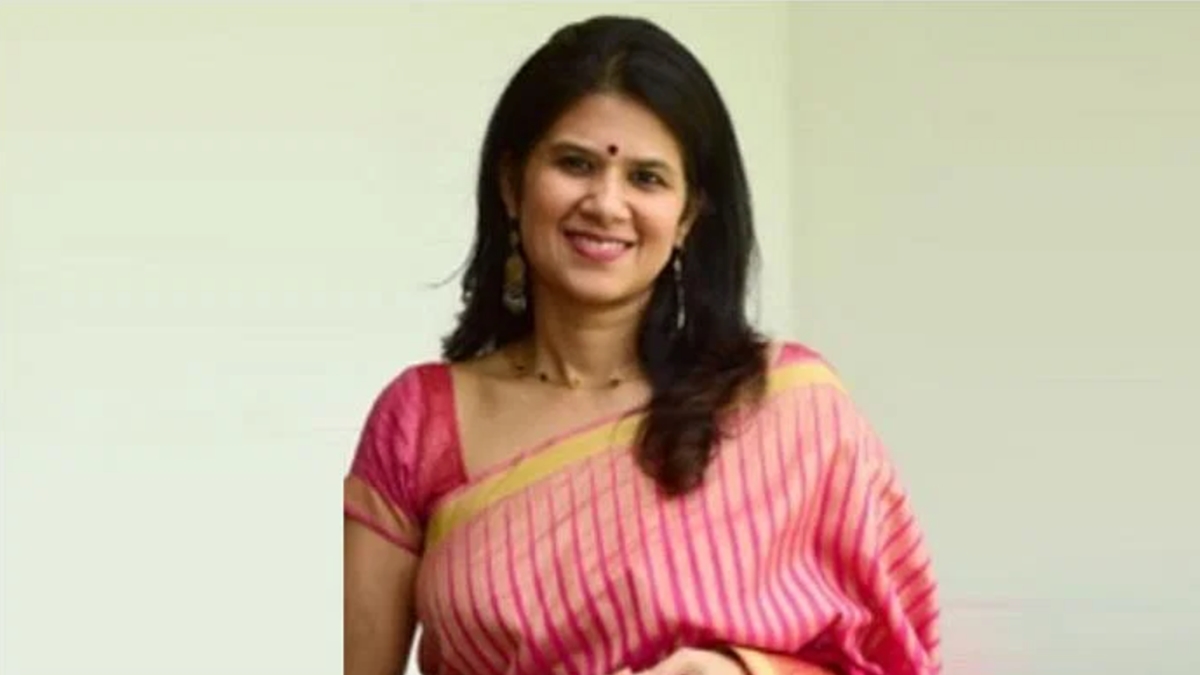

Manorama Online CEO Mariam Mammen Mathew appointed DNPA chairperson
Mariam Mammen Mathew, the Chief Executive Officer (CEO) of Manorama Online, has been appointed as the chairperson of the Digital News Publishers’ Association (DNPA) for a two-year term starting from April 1, 2024.She will be succeeding Tanmay Maheshwari, the Managing Director (MD) of Amar Ujala. Mathew served as the vice-chairperson during Maheshwari’s chairmanship. Expressing her gratitude, Mariam Mammen Mathew stated, “I am honoured to take on the role as chairperson of DNPA and contribute to the country’s digital media landscape. My main goal will be to amplify the scale, influence, and durability of digital news media entities. An integral part of this vision is embracing Artificial Intelligence (AI) to augment our capabilities and drive transformative change. Additionally, I am committed to nurturing a culture of Diversity, Inclusion and Equity within our organisation, which will play a pivotal role in reshaping the media landscape.”Puneet Gupt, the Chief Operating Officer (COO) of Times Internet, has been appointed as the new vice-chairman of DNPA, while Puneet Jain, the CEO of Digital HT Media, continues in his role as the treasurer. DNPA serves as a vital umbrella organisation for digital media businesses, including print and broadcasting, and comprises 18 prominent media organisations. These include Dainik Jagran, Dainik Bhaskar, The Indian Express, Malayala Manorama, ETV, India Today Group, Times Group, Amar Ujala, Hindustan Times, Zee Media, ABP Network, Lokmat, NDTV, The New Indian Express, Mathrubhumi, The Hindu, Network 18 and India TV. Tanmay Maheshwari said, “Having served as DNPA chairman for two years, I was pleased to contribute to the endeavour of democratising India's digital news landscape. I am confident that Mariam Mathew will bring valuable insights to our shared mission.”.Sujata Gupta, the secretary general of DNPA, highlighted the organisation's efforts in making India’s digital news landscape increasingly equitable. “Through events and activities, DNPA seeks to safeguard the interests of India’s digital news media houses. During Tanmay Maheshwari’s tenure as chairman and under his guidance, we made significant strides in making India’s digital news landscape increasingly equitable,” said Sujata Gupta, secretary general, DNPA. DNPA’s endeavours to democratise the digital news space coincide with efforts by Indian regulators to ensure fairness in the operations of Big Tech platforms in the country, led by the Minister of State for Electronics and Information Technology, Rajeev Chandrasekhar.


SC stays Centre’s March 20 notification establishing PIB ‘Fact Checking Units’
The stay will operate till third judge in the Bombay HC decides the question of validity of provisions of the Rule 3(1)(b)(v) of the Information Technology (Intermediary Guidelines and Digital Media Ethics Code) Rules, 2021.The Supreme Court on Thursday stayed a government notification of March 20 establishing the Press Information Bureau’s Fact Checking Unit (PIB FCU) to act as a “deterrent” against the creation and dissemination of fake news or misinformation regarding the “business” of the Centre. The order was passed by a three-judge Bench headed by Chief Justice of India DY Chandrachud on petitions filed by the Editors Guild of India and stand-up comedian Kunal Kamra. The Bench said the implementation of the March 20, 2024 notification would remain stayed until a third judge of the Bombay High Court takes a final call on the validity of provisions of the Rule 3(1)(b)(v) of the Information Technology (Intermediary Guidelines and Digital Media Ethics Code) Rules, 2021.It is under this provision that the March 20 notification was issued. The case had gone to the third judge of the High Court following a split verdict by a Division Bench.The notification was issued by the Centre after the third judge found no reason to stay Rule 3 on March 11.The apex court did not comment on the merits or legality of Rule 3(1)(b)(v), saying the impact of the provision on the fundamental rights to free speech and expression would be analysed by the High Court. Appearing for Mr. Kamra, senior advocate Darius Khambata said the establishment of the FCU would result in “every social media intermediary pulling down content for fear of consequences”.“This will set a deep chilling effect on free speech,” he submitted.Mr. Khambata said the Centre setting up a FCU to protect the “business” of the Centre was like “Ceasar judging Caesar”. “Why not an independent unit? Why does only the business of the Central government need protection from misinformation and fake content?” Mr. Khambata asked.He said individuals need more protection from fake content than the state. Mr. Khambata informed the Bench that the Centre had assured the High Court on April 27 last year that it would not implement Rule 3 till a final decision was taken by the court. He pointed to the timing of the issuance of the March 20 notification barely days before the Lok Sabha polls were due to start. Advocate Shadan Farasat, for the Editors Guild, said the implementation of the FCU run by the government would ensure that only the Centre would have monopoly over the truth. “There will be a singularity of truth,” he said.Solicitor General Tushar Mehta referred to several instances in the past when fake news had proliferated on social media, causing harm and even violence. He said the statutory mechanism was found inadequate to combat the viral dissemination of false content.He said, except for a few petitioners, the social media intermediaries have not challenged the Rule.Mr. Kamra, in his petition, argued that the sweep of the Rule operated to “muzzle speech against the Central government”. “By threatening intermediaries with the loss of their statutory safe harbour should they fail to take down content that the Central government’s FCU identifies as fake, false or misleading, the Rule coerces intermediaries to execute a regime of self-interested censorship of online content relating to the business of the Central government,” the petition argued. It said the intermediaries, who were profit-making, commercial enterprises, would choose to bend rather than risk civil or criminal liability for third-party content on their online platforms.


Indias solar waste could reach 600 kilotonnes by 2030, shows study
India's current installed 66.7 GW capacity (as of FY23) has already generated about 100 kilotonnes of waste, which will increase to 340 kilotonnes by 2030. This will include about 10 kilotonnes of silicon, 12-18 tonnes of silver, and 16 tonnes of cadmium and tellurium the majority of which are critical minerals for India, the study titled "Enabling a Circular Economy in India's Solar Industry: Assessing the Solar Waste Quantum" said.India's solar waste could reach a staggering 600 kilotonnes by 2030 equivalent to filling up 720 Olympic-size swimming pools according to a new study released on Wednesday. The study by the Ministry of New and Renewable Energy and independent think tank Council on Energy, Environment and Water (CEEW) said around 67 per cent of this waste will come from five states: Rajasthan, Gujarat, Karnataka, Andhra Pradesh, and Tamil Nadu.Recycling solar waste to recover these materials will reduce import dependency and enhance India's mineral security. The study found that the rest of the 260 kilotonnes of waste will come from new capacity that will be deployed in this decade (from 2024 to 2030). The solar waste will increase to about 19,000 kilotonnes by 2050; 77 per cent of which will arise from new capacities, CEEW said, adding this is an opportunity for India to emerge as a leading hub of circular economy for the solar industry and ensure resilient solar supply chains. India plans to amass around 292 gigawatt of solar capacity by 2030, making solar PV waste management crucial for environmental, economic, and social reasons.The study, conducted under Niti Aayog's Action Plan for Circular Economy - Solar Panels, for the first time, estimates India-specific solar waste generation from various streams, excluding manufacturing. This information is crucial for creating data-driven waste management policies. India is already implementing several measures to tackle the waste. Last year, the environment ministry issued amended E-waste Management Rules 2022 bringing solar photovoltaic cells, panels, and modules under its ambit. These rules mandate the producers of solar cells and modules to manage their waste under the extended producer responsibility (EPR) framework. Arunabha Ghosh, CEO, CEEW, said, India must proactively address solar waste, not just as an environmental imperative but as a strategic necessity for ensuring energy security and building a circular economy. As we witness the remarkable growth of solar from only 4 GW in March 2015 to 73 GW in December 2023, robust recycling mechanisms become increasingly crucial. They safeguard renewable ecosystems, create green jobs, enhance mineral security, foster innovation, and build resilient, circular supply chains.


UP govt aims to develop MSME export hubs to compete in global markets
The MSME department is working on a plan to promote 75 districts as potential export hubs for local industries to create jobs and contribute to the Rs 1 trillion dollar economy goal.The state government will develop local export hubs and nudge the e-commerce sector to double micro, small and medium enterprises (MSME) shipments to Rs 3 trillion in two-three years, according to sources. The sector contributes 60 per cent to UP’s annual industrial output and is the leading employment generator after agriculture and allied activities.The state will invest in the promotion and online marketing of MSMEs, especially under the One District One Product (ODOP) scheme, to compete in the global markets. The sector played a vital role in attracting private investment in the state, said Rakesh Sachan, the state’s MSME minister. The MSME department will send officials to Tamil Nadu and Odisha to study the mechanism of raw material banks set up in these states for possible replication.However, these industries faced impediments to working capital, lack of marketing support, etc. In this regard, the UP government launched the ODOP scheme to revive traditional handicrafts and indigenous industries. Addressing a recent MSME programme in Lucknow, Chief Minister Yogi Adityanath said that when indigenous products gain traction, it is imperative to nurture and incentivise them with a robust platform to flourish in the market.


States and Union Territories step on the gas to raise funds
Seventeen States & UTs are expected to cumulatively mop up ₹50,206 crore at an auction of State Government Securities (SGS) to be conducted by RBI on March 19 States & Union Territories (UTs) seem to be in a tearing hurry to raise monies before the close of FY24. This also comes in the backdrop of expectations that the Election Commission will announce general election dates shortly. Seventeen States & UTs are expected to cumulatively mop up ₹50,206 crore at an auction of State Government Securities (SGS) to be conducted by RBI on March 19. The amount that the States & UTs are collectively seeking to raise on March 19th is substantially higher than the ₹27,810 crore they had planned to mop up, going by the Indicative Calendar of Market borrowings. The amount that States and UTs are planning to raise on March 19th will also be the highest amount that they have raised at a weekly auction in FY24 so far. Twenty States and UTs had collectively raised ₹45,160 crore (the second highest amount raised in FY24) on February 27.Venkatakrishnan Srinivasan, Founder & Managing Partner, Rockfort Fincap LLP, said such a large weekly SGS auction size has not been witnessed before. States & UTs usually raise ₹35,000-Rs 37,000 crore, thereabouts at the weekly auctions conducted by RBI.The latest auction announcement also comes in the backdrop of the expected announcement of general election dates on Saturday. Meanwhile, the RBI conducted a variable rate repo (VRR) auction on Friday after a gap of eight days to infuse liquidity into the banking system amidst outflows expected due to direct and indirect tax payments. RBI received bids from Banks for drawing 7-day funds aggregating ₹76,560 crore against the notified amount of ₹75,000 crore. It allotted funds amounting to ₹75,001 crore at a weighted average rate of 6.65 per cent. Yield of the 10-year Government Security (7.18 per cent GS 2033) moved up about two basis points, with its price declining about 17 paise, in sync with rising US Treasury yields. Yield of this benchmark paper closed at 7.0644 per cent (previous close: 7.0401per cent), with its price closing at ₹100.775 (Rs 100.9425).


Amazon working with govt agencies to push MSME exports in India
Amazon India’s Global Trade Director Bhupen Wakankar talks to businessline about the company’s growth trajectory, partnerships with government and support provided to MSMEs Amazon Global Selling, the e-commerce giant’s export platform for micro, small and medium enterprises, is collaborating with the Ministry of Commerce and Director General of Foreign Trade to further accelerate sales from districts that have good export potential. “What we have done over the last two years is specifically start forming partnerships at all levels,” Bhupen Wakankar, Director, Global Trade, Amazon India, told businessline. It is collaborating with the central and state government, trade bodies, export promotion councils, and industry bodies such as CII and FICCI as well as logistics, service providers, banks and VCs for funding. Amazon India recently signed a memorandum of understanding with the commerce ministry to deepen engagement in the top 75 districts in the country that account for 80 per cent of its exports. It is also engaging with the DGFT which has an on-the-ground presence and thorough tie-ups with local export promotion councils. “We want to specifically drive awareness, and education of E-commerce exports. So we’re going to go at a district level, and leverage the infrastructure…”, he added. Amazon Global Selling currently has over 1.25 lakh exporters on its platform which has surpassed $8 billion in revenue since its launch in 2015 and is rapidly approaching its target of $20 billion by 2025. Exporters have access to over 200 countries through Amazon’s 18 international websites.


Vedanta to appeal against SEBI order levying ₹78 crore penalty
Anil Agarwal-led Vedanta has decided to contest the SEBI order of levying a penalty of ₹78 crore on delayed dividend payments to Cairn UK Holdings (now Capricorn UK Holdings) Ltd (CUHL).The dividend payment to CUHL was withheld due to a tax dispute between Cairn UK and the Indian Government, and the dividend of ₹667 crore was deposited in an “unpaid dividend account” as per law. When Cairn UK reached a settlement with the Government in its tax dispute, all dues were cleared including the said dividend amount. Moreover, as per the settlement with the government, Cairn UK undertook the process to surrender its rights to claim interest on tax refund (arising on account of this dividend), said Vedanta in a statement on Wednesday. “There was absolutely no intent on the part of Vedanta to withhold the dividend payment from CUHL. Vedanta has paid out dividend of over ₹84,000 crore to shareholders in the last ten years.” it said. The amount of ₹667 crore is a very small amount in the context of the amount of dividend Vedanta pays, said the company. Vedanta will appeal the SEBI order before the appropriate forum, it added. Besides levying a penalty, the SEBI on Tuesday barred the firm’s entire Board, including Anil Agarwal’s brother Navin and daughter Priya, from accessing the capital market. Interestingly, in 2019, SEBI closed the complaint by CUHL after Vedanta said that the dividend was withheld due to an IT attachment of assets. However, CUHL had moved the Supreme Court in 2019 against the SEBI order. In 2022, the Apex Court ordered SEBI to initiate an enquiry and complete the same within a specific time frame. SEBI started hearing the case afresh and has now levied the penalty on Vedanta.


Election Commission Confirms Receipt of Electoral Bonds Data From SBI
The State Bank of India (SBI) has furnished information on electoral bonds purchased and encashed since 2019 to the Election Commission of India (ECI).In a post on X (formerly Twitter), the ECI has confirmed receipt of the data from the SBI. “In compliance of Hon’ble Supreme Court’s directions to the SBI, contained in its order dated Feb 15 & March 11, 2024 (in the matter of WPC NO.880 of 2017), data on electoral bonds has been supplied by State Bank of India to Election Commission of India, today, March 12, 2024,” the post reads. Yesterday, the Supreme Court rejected the bank’s plea for extra time till June 30 to furnish the details and asked it to do so by today, adding that it may proceed against the bank on grounds on wilful disobedience if the new deadline was not met. It also asked the ECI to make the details public on its website by Friday (March 15). When asked by reporters to confirm when it would upload the details onto its site, the ECI did not immediately offer a response.Electoral bonds are interest-free financial instruments that individuals or groups may use to make anonymous donations to political parties. But on February 15 this year, the Supreme Court said the bonds violated voters’ right to information and were thus unconstitutional. In its judgement, the top court gave the SBI time till March 6 to provide information to the ECI on the details of electoral bonds purchased since April 12, 2019. This data was to include the date the bonds were purchased on, their denominations and the names of who purchased them. The court also said ordered for data on every electoral bond encashed by political parties since that date to be furnished, including the date they were encashed on and the bonds’ denominations.Two days before the March 6 deadline, the SBI said it needed time till June 30 to furnish the data because it had to compile 44,434 sets of information from two ‘information silos’. However, the Supreme Court asked the bank what it had done since February 15 and pointed out that the bank already had the necessary information with it. Rs 16,518 crore worth of electoral bonds were sold from 2018 to the start of 2024, the government recently informed parliament. The ruling BJP has by far been the biggest beneficiary of the scheme.Of the total number of electoral bonds – worth Rs 12,008 crore – sold between 2017-2018 and 2022-2023, the BJP received nearly 55%, or Rs 6,564 crore.
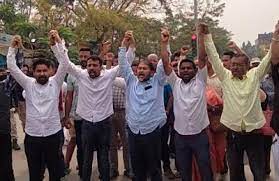

Anti-CAA Protests Erupt In Assam After MHA Notification
No sooner did the news spread about the Ministry of Home Affairs (MHA) notifying the Citizenship (Amendment) Act – CAA – in Assam on Monday, March 11, protests erupted at several university campuses, including the Cotton University in Guwahati and the Dibrugarh University. According to news reports, students came out in dozens, shouting slogans to protest against the implementation of the CAA across the non-Sixth Scheduled areas of Assam. Student bodies like the All Assam Students Union (AASU) also came out on the streets in different parts of the state and burnt copies of the Act. AASU, which has been at the forefront of the anti-foreigner agitation since the 1980s which ended with the Assam Accord, announced a bandh in the state. AASU chief advisor Samujjal Bhattacharya told reporters, “The CAA is not acceptable to us. The BJP government has today delivered the biggest blow to the Assamese people, our identity, and our culture. Our protest will continue.” The CAA nullifies the citizenship cut-off date of March 1971 as per the Accord. As per the Act, a Bangladeshi Hindu who had entered the state till 2019 is eligible for citizenship and can settle permanently in the north-eastern state. The two political parties which were born of the movement against the legislation – the Raijor Dal and the Asam Jatiya Parishad (AJP) – announced a ‘hartal’ and urged the Assamese people to come out of their homes to register protest. AJP president Lurinjyoti Gogoi called March 11 “a black day for Assam” and condemned the Bharatiya Janata Party (BJP) governments both at the state and the Centre for not heeding the Assamese people’s opposition to implementation of the the Act in the state. “This Act will crush the identity, land and cultural rights of the community,” Gogoi said on social media platform X (previously called Twitter). Accusing the BJP of seeking the votes of the Assamese community to protect their rights but ending up giving it the biggest blow, he said, “BJP’s leaders from Assam like Sarbananda Sonowal and Himanta Biswa Sarma failed to convince their central government to keep Assam out of the CAA … it is a black day for Assam … I urge people to get ready to fight this Act.”


The Citizenship Law CAA is expected to become a reality today, four years after it was passed.
According to sources who spoke with NDTV on Monday afternoon, the Union Home Ministry may announce the controversial Citizenship Amendment Act later tonight. The CAA, which for the first time makes religion a citizenship test, was approved by Parliament in December 2019 in the midst of nationwide violent protests and strong opposition from opposition lawmakers and chief ministers of non-BJP states. These protests resulted in the deaths of over 100 people.Non-Muslim immigrants from Bangladesh, Pakistan, and Afghanistan who arrived in India prior to 2015 may be granted Indian nationality by the government once it is granted. News agency ANI was informed by an unidentified official that "the regulations are prepared and an online portal is already set up... applicants can disclose year of entry without travel documents". There will be no need for any further paperwork, the official stated.This occurs less than a month after Home Minister Amit Shah emphasized that the CAA will be put into effect prior to the April/May Lok Sabha elections. "CAA is a national act; it will undoubtedly be informed. CAA will take effect prior to the election, so there's no need for confusion."Last month, Mr. Shah made an effort to downplay concerns that minority communities would be singled out by the combination of the controversial National Register of Citizens (NRC) and the Citizens Act (CAA). "Muslim brothers of ours are being incited and misled." Citizenship by Assurance (CAA) is only intended for individuals who arrived in India as a result of persecution in Bangladesh, Afghanistan, or Pakistan. It's not intended to take away someone's citizenship."Along with passing resolutions against all three, the then-ruling Bharat Rashtra Samithi of former Chief Minister K Chandrashekar Rao called on the government to "remove all references to any religion, or to any foreign country" in Telangana, citing concerns voiced by thousands of people nationwide. A resolution was also passed by the Madhya Pradesh government, which was then ruled by the Congress. Interestingly, a number of state legislators and leaders of the BJP also opposed the legislation.



















